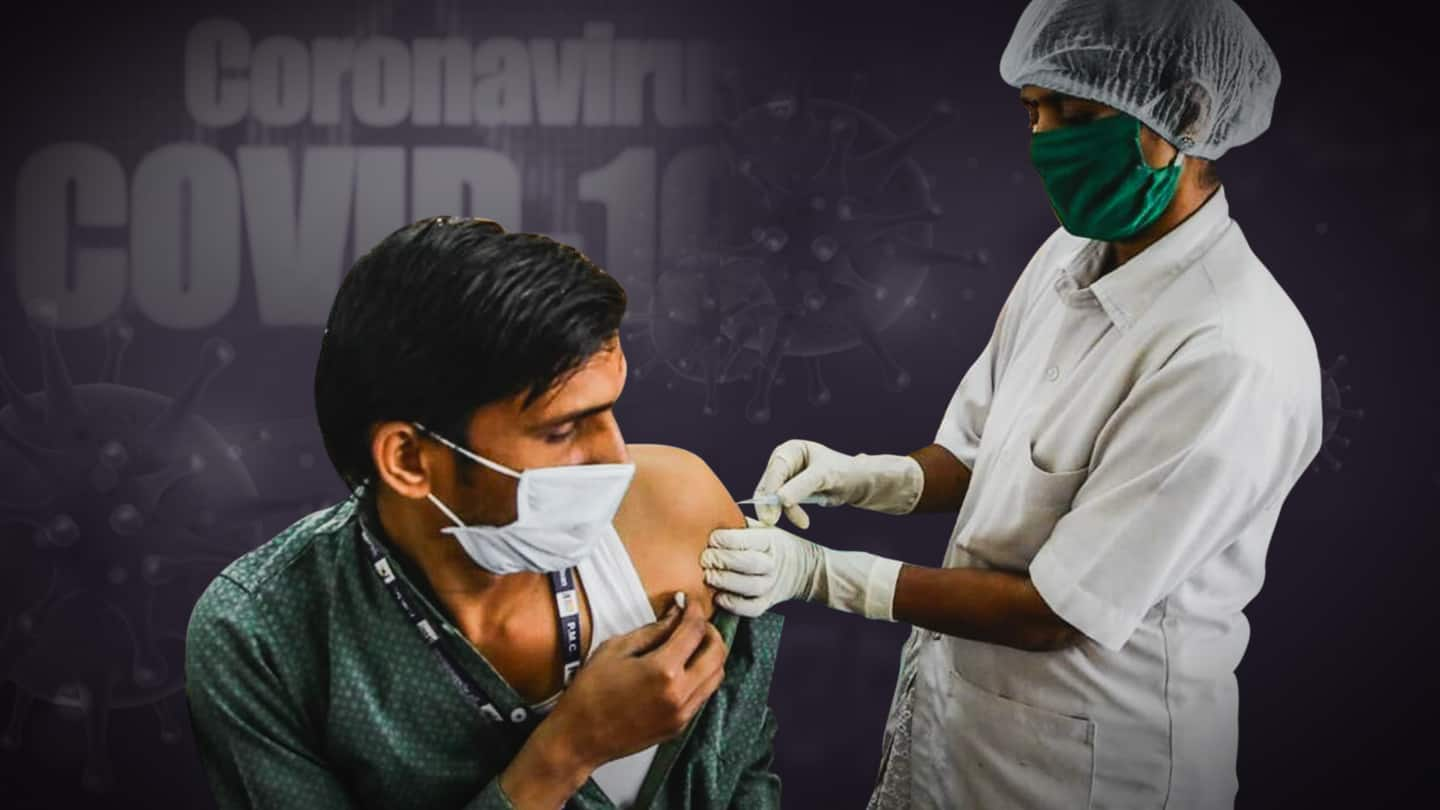
When to take COVID-19 vaccine after recovery and other FAQs
What's the story
Amid the imminent threat of a third wave of COVID-19, vaccinations against the viral disease are becoming pertinent.
However, 96% of the country's population is yet to be fully vaccinated (nearly 18% has received at least one dose).
As India gears up to increase inoculations in July and August, here are some of the frequently asked questions about COVID-19 vaccines answered.
Recovery
After infections, how long should you wait to get vaccinated?
Indian doctors have recommended gaps ranging from one-three months for an individual to get a shot after recovering from COVID-19.
The US Centers for Disease Control and Prevention advises getting the vaccine immediately after recovery, while the World Health Organization says a person should wait six months.
Experts say waiting to get the vaccine after recovery boosts immune response as the infection produces antibodies.
Infection
What if you get infected between two doses?
If there is exposure to COVID-19 within one to three weeks after receiving the first dose, the vaccine is unlikely to have an impact.
However, only a mild disease is expected if there is exposure to the virus over three weeks after the first COVID-19 vaccine dose.
Since infections are akin to vaccinations, some experts recommend waiting after COVID-19 recovery before the second dose.
Quote
Can you get vaccinated when infected?
Dr. Gagandeep Kang—an immunologist at Christian Medical College, Vellore—told ThePrint, "We do not currently have any evidence to say whether it is better or worse to get vaccinated when infected, whether in terms of immune response or any safety issue."
Second dose
What if you miss the second dose?
According to Dr. Kang, missing your second dose of vaccine should be no cause of worry.
It does not lead to any loss of protection in the short term and does not require taking the first dose again if it's been delayed by weeks, perhaps months even, Dr. Kang said.
If delayed by years, the first dose may have to be repeated, she said.
Pregnancy
Can vaccine be administered during pregnancy, lactation period?
Current data suggests that the vaccines are safe for those who are pregnant or lactating.
Several pregnant healthcare workers have also taken vaccines and have had no adverse outcomes.
It has been noted that IgG antibodies can also pass on to the fetus through the placenta during the second trimester and early third trimester.
IgA antibodies can be passed on through breast milk.
Allergies
Are vaccines safe for those with allergies?
Dr. Kang said that everyone should take the vaccines except those who already took them and had a severe allergic reaction.
Currently, no evidence links any kind of food or drug allergy with COVID-19 vaccines.
Immunocompromised patients and those undergoing chemotherapy are also recommended to take the vaccines, however, the immune response may relatively be weaker since they are immunosuppressed.
Antibody tests
Do antibody tests work after vaccination?
It remains unknown which antibodies actually protect against the virus, however, experts surmise it is likely to be neutralizing antibodies.
Breakthrough infections (occurring after vaccinations) need to be studied to identify which antibodies offer protection.
Dr. Kang said, "Commercial tests are only binding antibody tests. They tell you [if] you have been infected or vaccinated, but they don't tell you whether you are protected."